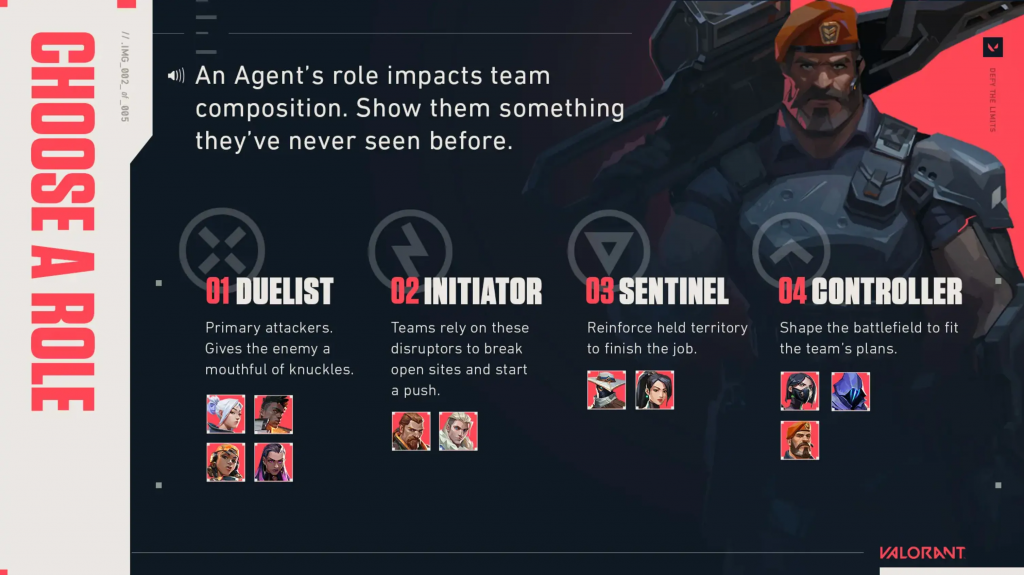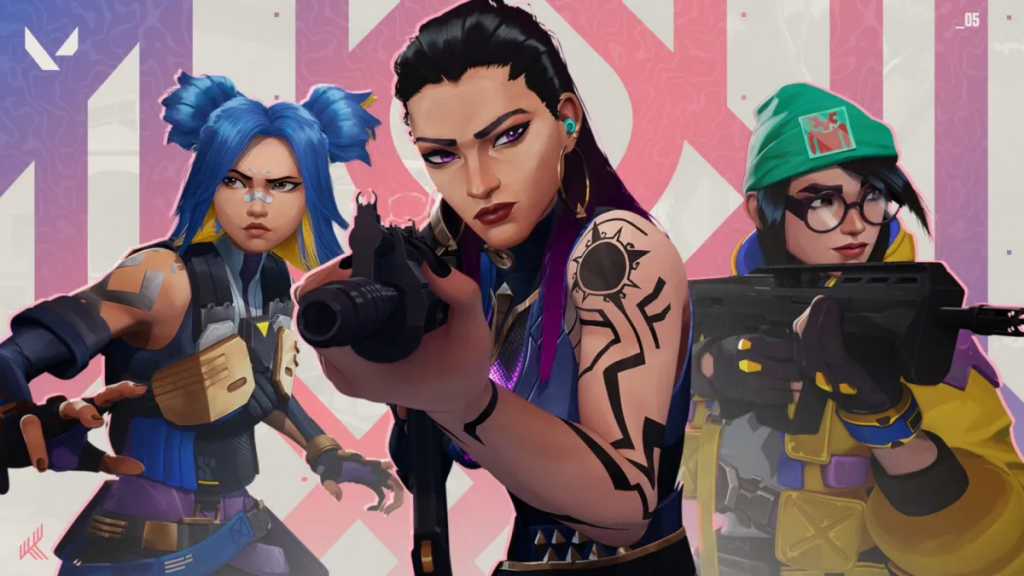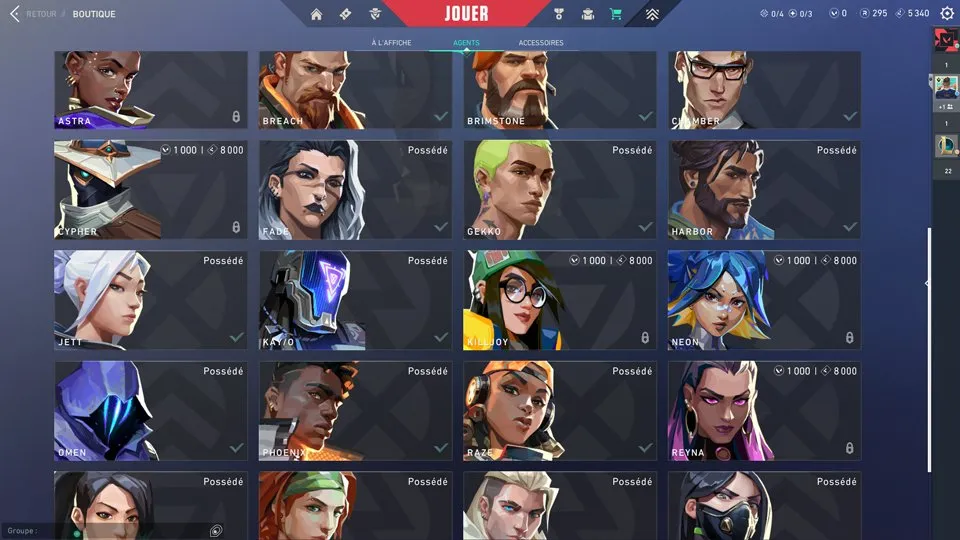As a beginner in Valorant, you may feel overwhelmed by the number of agents and their respective roles and functions. Choosing the right agent role in Valorant is one of the most important decisions a player can make to maximize their impact on the game. This guide aims to help you find the perfect role for Valorant, with detailed information about each role and how to value your playstyle.
Contents
Understand the Different Roles

Valorant Roles
Before deciding which role might best suit you, it’s crucial to understand what each role offers.
Duelist:
- Objective: Get kills and initiate engagements.
- Playstyle: Aggressive and high-risk, high-reward.
- Examples: Jett, Reyna, Raze, Phoenix.
Duelists are designed to be the team’s main damage dealers. If you love being at the front of the action, engaging in one-on-one fights, and carrying rounds through high individual skill, a duelist may be your best fit. Your team’s success relies on your success as a duelist.
Controller:
- Objective: Block sightlines and control space.
- Playstyle: Tactical, patient, and map-aware.
- Examples: Brimstone, Omen, Viper, Astra.
Controllers excel at managing space and controlling the battlefield. They can make it difficult for enemies to move freely, using their abilities to cut off sightlines and force engagements on their terms. This role might appeal if you enjoy controlling the game’s flow and thinking strategically.
Initiator:
- Objective: Break through enemy defenses and set up team fights.
- Playstyle: Supportive, disruptive, and team-oriented.
- Examples: Sova, Skye, Breach, KAY/O.
Initiators are responsible for creating opportunities for their team to enter bomb sites or disrupt enemy plans. Their abilities are focused on gathering information, disorienting opponents, and enabling teammates. If you like coordinating with others and leading the charge with utility, this role is for you.
Sentinel:
- Objective: Defend areas and support teammates.
- Playstyle: Defensive, calculated, and supportive.
- Examples: Sage, Killjoy, Cypher, Chamber.
Sentinels are vital in holding down sites and supporting their teams. They are more reactive than proactive, using traps, healing, and gadgets to protect their squad or stall opponents. If you enjoy playing a more defensive and support role, Sentinels is your go-to agent.
Flex:
- Objective: Adapt to the team’s needs.
- Playstyle: Versatile and adaptable.
- Examples: Depending on team composition, agents like Omen or Viper can be used in different roles.
Flex players are comfortable playing multiple roles and switching agents depending on the team’s strategy. If you enjoy versatility and can play a variety of agents well, being a Flex player allows you to fill any role necessary for your team.
Assess Your Playstyle

To choose an agent role that fits you, consider how you like to play:
- Aggressive and Independent: Duelists are your best bet. If you enjoy taking fights and relying on your mechanical skill to win duels, this role is perfect for people familiar with shooter FPS but not Valorant.
- Tactical and Strategic: Controllers are an excellent match for people who prefer to fight in the second fight after the duelist and a mensurate enemy have access to the site.
- Team-Oriented: Initiators are ideal for players who thrive on supporting their team with disruptive abilities and information-gathering.
- Defensive and Methodical: Sentinels are perfect for players who enjoy a slower playstyle, taking care of flanks, or denying enemy access. Being a Sentinel means your abilities are your success, unlike duelists, who can survive without them. Sentinels’ utility is crucial for winning.
- Adaptable: Flex players are perfect for those who enjoy playing different styles and are willing to switch roles to suit their team’s needs.
Experiment with Different Agents

Valorant Agents
The best way to discover which role suits you the best is by experimenting with different agents in the range, spike rush, and unrated, playing several games as a Duelist, Controller, Initiator, and Sentinel, and evaluating your strengths and weaknesses with each role. Also, a great way to find the best role is simply by watching other Pros and content creators and trying to learn as much as possible about the role from them. This method is more reliable as it gives insight into how the role should be played at the highest levels.
Evaluate Your Strengths
As you try out different agents, take stock of what you’re good at:
- Aim and Reaction Time: If you have excellent aim and reflexes, Dualists may be your ideal role.
- Utility Mastery: It could be your path if you excel at using abilities to disrupt or control controllers or initiators. Patience and Defensive Play: If you excel at playing patiently and defending, Sentinels will suit you.
- Adaptability: Being a Flex player is a good option.
if you’re comfortable switching roles and agents
How Does Team Composition Affect Your Role?
In a competitive match, assembling a well-balanced team composition is everything. Usually, a good team will be a mix of duelists, controllers, initiators, and sentinels. Occasionally, you may run into a game where someone else has picked your role. You may want to fill the other missing role to complete the team in these situations. Learning to be flexible and versatile is a valuable skill.


